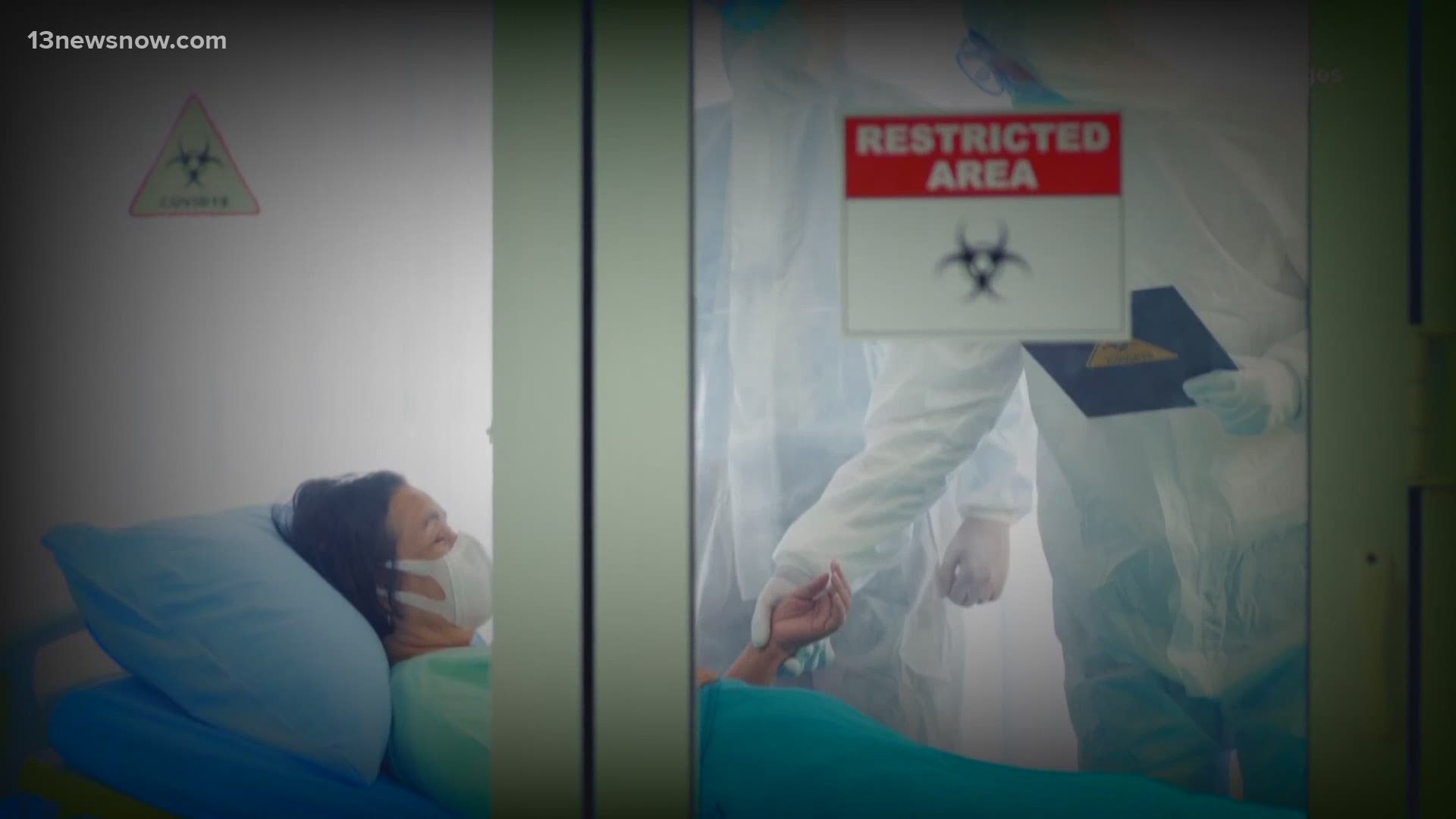NORFOLK, Va. — Our nation's healthcare heroes spent the past year caring for COVID-19 patients and saving lives.
But many will soon be left with the scars of death and heartbreak day-in and day-out.
The question now is who saves the heroes?
“The whole year has been these extreme emotion waves," said Dr. Mary Baker, a pulmonologist at Sentara Leigh Hospital in Norfolk. "Those emotions, those waves would happen many times during the same day.”
Frontline workers like Dr. Baker held on for a choppy ride beginning in March 2020. But through the chaos, they kept caring for others.
“You’re on that rollercoaster and you’re going up and down so quickly, it’s hard to catch your breath," Dr. Baker said.
As a lung doctor, she's used to the ICU, ventilators, and tough days. But nothing could have prepared her for the painful realities of COVID-19.
“We had entire families decimated," she said. "We would lose two and three family members, or we would lose a husband and wife within days of each other, and then you have to tell a family over the phone that their parents aren’t coming home, and it’s just really hard to do that over and over, day after day.”
Dr. Baker spent the year treating people from across Hampton Roads.
Virginia Beach had the most infections locally during this first year of COVID-19. The city's first two known cases last March snowballed into 10,000 by Thanksgiving and 15,000 by Christmas. There were more than 30,000 infections a year later in Virginia Beach, with 341 people dying in the city.
That's almost one death a day.
“We experienced for the first time death over FaceTime and death over Zoom, and that’s not something I ever want to do again," said Dr. Baker.
One year later, the same healthcare heroes who cared for our sickest loved ones may soon need help themselves. A new study from the University of Utah Health suggests more than half of frontline workers could be at risk for mental health problems, including acute traumatic stress, depression, anxiety, and more.
“I think everybody is going to need a fair amount of therapy and counseling to delve into what we have witnessed," Dr. Baker said. “And I think probably a lot of people aren’t yet ready to do that because we’ve been in survival mode for so long.”
It's that survival mode that helped doctors and nurses weather the pandemic, as they could soon face another storm on the horizon.
“I feel like 2021 is going to be a year of hopefully healing, but I think we have a lot of work to do," Dr. Baker said.
Dr. Baker said getting vaccinated is the best way to show your thanks to healthcare workers.

